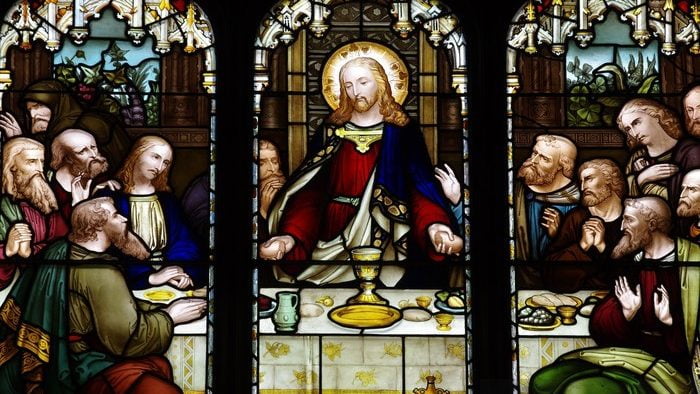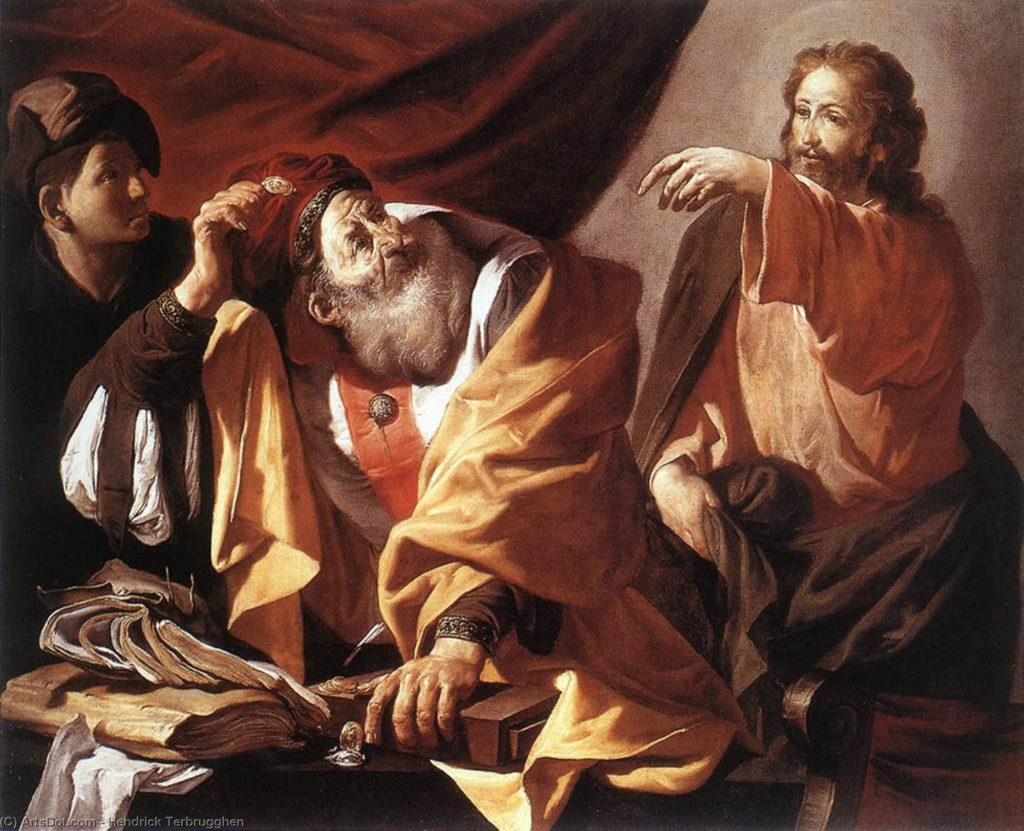FRIDAY AFTER ASH WEDNESDAY
MASS READINGS AND GOSPEL COMMENTARIES.

Friday after Ash Wednesday Mass readings
READING I
Is 58:1–9a
Thus says the Lord God: Cry out full-throated and unsparingly, lift up your voice like a trumpet blast; tell my people their wickedness, and the house of Jacob their sins. They seek me day after day, and desire to know my ways, like a nation that has done what is just and not abandoned the law of their God; they ask me to declare what is due them, pleased to gain access to God. “Why do we fast, and you do not see it? Afflict ourselves, and you take no note of it?”
Lo, on your fast day you carry out your own pursuits, and drive all your laborers. Yes, your fast ends in quarreling and fighting, striking with wicked claw. Would that today you might fast so as to make your voice heard on high! Is this the manner of fasting I wish, of keeping a day of penance: that a man bow his head like a reed and lie in sackcloth and ashes? Do you call this a fast, a day acceptable to the Lord? This, rather, is the fasting that I wish: releasing those bound unjustly, untying the thongs of the yoke; setting free the oppressed, breaking every yoke; sharing your bread with the hungry, sheltering the oppressed and the homeless; clothing the naked when you see them, and not turning your back on your own. Then your light shall break forth like the dawn, and your wound shall quickly be healed; your vindication shall go before you, and the glory of the Lord shall be your rear guard. Then you shall call, and the Lord will answer, you shall cry for help, and he will say: Here I am!
RESPONSORIAL PSALM
R. A heart contrite and humbled, O God, you will not spurn.
Cor contrítum et humiliátum, Deus, non despícies.
Have mercy on me, O God, in your goodness;
in the greatness of your compassion wipe out my offense.
Thoroughly wash me from my guilt
and of my sin cleanse me.
R.
For I acknowledge my offense,
and my sin is before me always:
“Against you only have I sinned,
and done what is evil in your sight.”
R.
For you are not pleased with sacrifices;
should I offer a burnt offering, you would not accept it.
My sacrifice, O God, is a contrite spirit;
a heart contrite and humbled, O God, you will not spurn.
R.
VERSE BEFORE THE GOSPEL
Seek good and not evil that you may live, and the Lord will be with you.
GOSPEL
Mt 9:14–15
The disciples of John approached Jesus and said, “Why do we and the Pharisees fast much, but your disciples do not fast?” Jesus answered them, “Can the wedding guests mourn as long as the bridegroom is with them? The days will come when the bridegroom is taken away from them, and then they will fast.
Gospel Commentary from the Navarre Bible, Commentary to the Gospel of St. Matthew (with permission)
- 14-17: This passage is interesting, not so much because it tells us about the sort of fasting practised by the Jews of the time — particularly the Pharisees and John the Baptist’s disciples — but because of the reason Jesus gives for not requiring his disciples to fast in that way.
- His reply is both instructive and prophetic.
- Christianity is not a mere mending or adjusting of the old suit of Judaism. The redemption wrought by Jesus involves a total regeneration. Its spirit is too new and too vital to be suited to old forms of penance, which will no longer apply.
- We know that in our Lord’s time Jewish theology schools were in the grip of a highly complicated casuistry to do with fasting, purifications etc, which smothered the simplicity of genuine piety. Jesus’ words point to that simplicity of heart with which his disciples might practise prayer, fasting and almsgiving (cf. Mt 6:1-18 and notes to same).
- From apostolic times onwards it is for the Church, using the authority given it by our Lord, to set out the different forms fasting should take in different periods and situations.
- 15 “The wedding guests”: literally, “the sons of the house where the wedding is being celebrated” – an expression meaning the bridegroom’s closest friends. This is an example of how St Matthew uses typical Semitic turns of phrase, presenting Jesus’ manner of speech.
- This “house” to which Jesus refers has a deeper meaning; set beside the parable of the guests at the wedding (Mt 22:1 ff), it symbolizes the Church as the house of God and the Body of Christ: “Moses was faithful in all God’s house as a servant, to testify to the things that were to be spoken later, but Christ was faithful over God’s house as a son. And we are his house if we hold fast our confidence and pride in our hope” (Heb 3:5-6).
- The second part of the verse refers to the violent death Jesus would meet.
Fasting is related to the time of waiting. Jesus himself fasted in the desert, summing up unto himself the long preparation of humanity for the coming of the Kingdom. When his public ministry begins, Jesus can rightly say that the Kingdom is already at hand, that the Bridegroom has arrived, and that his disciples are not to fast as long as he lives. The fasting on Good Friday responds in a special way to these words of Jesus: it is the fast on the day during which Jesus, who died on the Cross, is snatched from his own disciples.
As we await the definitive coming of the Bridegroom at the end of time, in the fullness of the Kingdom, we Christians prepare the redemptive mysteries of the Lord. In the early Christianity, this was done only on Good Friday and Saturday. Later, it was lengthened to a week and, subsequently, to the forty days of Lent.
- In this preparation, ascetical practices of fasting, abstinence and other penances are intensified. The current practice of abstinence during Fridays of Lent is a preparation for the celebration of the mysteries of the Passion, Death and Resurrection of the Lord, and also an attitude of waiting for the glorious arrival of Jesus Christ and the establishment of His Kingdom at the end of the world.
VIDEO COMMENTARY ON TODAY’S GOSPEL
TOPIC: WHAT CAN YOU GAIN FROM FASTING?
In today’s gospel reading, the disciples of John the Baptist ask Jesus why they, John’s disciples and the Pharisees – remember, they are all Jews, including Jesus and his disciples – made fasting a regular habit while Jesus’ disciples do not.As we strive for holiness, we realize the great importance of fasting.
Stay updated: subscribe by email for free TO OUR NEW WEBSITE www.catholicsstrivingforholiness.org (PUT YOUR EMAIL IN THE SUBSCRIBE WIDGET).
We are also in www.fb.com/Catholicsstrivingforholiness. Kindly help more people in their Christian life by liking our page and inviting your family, friends and relatives to do so as well. Thanks in advance and God bless you and your loved ones! Fr. Rolly Arjonillo

